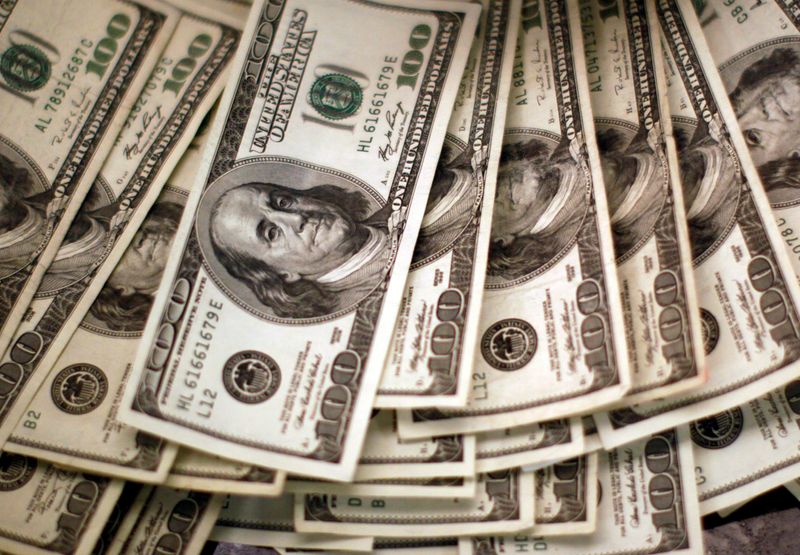By Gertrude Chavez-Dreyfuss and Saqib Iqbal Ahmed
NEW YORK (Reuters) -The U.S. dollar eased against a basket of currencies on Friday, as investors assessed Friday's jobs report that showed U.S. hiring rose broadly in September but also that wage growth is slowing.
{{2126|The dodollar index, which measures the currency's strength against a basket of six rivals, was down 0.31% to 106.03.
The index rose as high as 106.98 earlier in the session after data showed U.S. nonfarm payrolls increased by 336,000 jobs last month. The numbers for August were revised higher to show 227,000 jobs added instead of the previously reported 187,000. Economists polled by Reuters had forecast September payrolls rising by 170,000 jobs.
"This morning's data pushed expectations for the first rate cuts further into late 2024, but failed to convince market participants of another hike this year, meaning that short-term yields - which play a dominant role in driving foreign exchange moves - remained relatively stable," Karl Schamotta, chief market strategist at Corpay in Toronto, said.
Post-payrolls, U.S. rate futures priced in a 42% chance of a rate increase by the end of the year, up from about 33% on Thursday, according to the CME's FedWatch tool.
The dollar's recent strength has been underpinned by a rapid sell-off in U.S. government bonds, which sent yields to multi-year highs.
While benchmark 10-year notes reached 4.887% and 30-year yields hit 5.053%, both the highest since 2007, two-year notes rose as high as 5.151%, holding below the 5.202% level hit on Sept. 21.
The payrolls data showed monthly wage growth remained moderate, with average hourly earnings rising 0.2% after a similar gain in August. In the 12 months through September, wages increased 4.2% after advancing 4.3% in August.
"When we go through the report today, average hourly earnings are probably soft enough that the Fed doesn't need to hike, but we'll see what happens with inflation, I think it still keeps that on the table," Tony Welch, chief investment officer at SignatureFD in Atlanta, said.
For the week, the dollar index was down 0.1%, set to snap an 11-week streak of gains that has helped it advance about 6%.
"(It's) a small bit of profit taking," Helen Given, FX Trader at Monex USA, said of the dollar's reversal on Friday.
Attention now turns to next week's U.S. inflation data that could offer clues to Fed action going forward.
"If next week's U.S. consumer price data pushes yields even higher, we should see safe-haven flows beginning to add to rate differentials in supporting the greenback," Corpay's Schamotta said.

Against the yen, the dollar was 0.54% higher at 149.31 yen, hovering close to the 150 mark that traders have been on watch for weeks for a possible intervention by Japanese officials to combat a sustained depreciation in the yen.
The pound was up 0.43% at $1.22445, set to close the week on an upbeat note, a positive sign that backed the idea of a larger rebound for the British currency.
